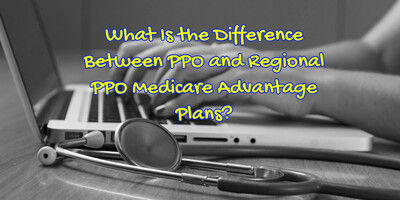
Medicare Premiums: Is Your Employer Allowed to Help Pay?
Suppose you are still employed and receiving Medicare benefits. In that case, you may wonder if your employer can pay your premiums, especially if they offer group health coverage as a benefit to employees.
The answer to this question is...it depends.
Medicare and Employer Coverage
It is important to know that you are allowed to have Medicare and employer health insurance simultaneously. This is often a great benefit as your employer's health insurance offers a broader range of services that could include prescription drug coverage, vision, hearing, dental, and even workers' compensation.
Suppose your employer is paying any part (or better yet, all) of your premium for group health insurance. In that case, it is likely beneficial for you to continue the group insurance along with your Medicare benefits.
Creditable vs. Not-Creditable Employer Insurance
The answer to our original question requires a definition of creditable insurance. As you may know by now, creditable insurance is an important thing to be aware of if you seek to delay enrollment in some aspects of Medicare.
An employer's group health coverage is deemed creditable if the employees total 20 or more people. Any group health plan that does not consist of at least 20 employees is not creditable insurance.
Contact your HR department for answers if you need help figuring out if your employer's health plan is creditable or not.
Now that we've determined what kind of insurance your employer offers, we can discuss IRS Notice 2015-17.
IRS Notice 2015-17: The Jist of It
An employer payment plan is an arrangement in which the employer pays for (or reimburses for) some or all member premiums of Medicare Parts B or D. If this extends to two or more employees, it constitutes a group health plan and is subject to market reforms.
Since Medicare is not a group health plan, the employer's payment plan can't be integrated with Medicare to satisfy market reforms.
The employer's payment plan is integrated with the group health plan if the following requirements are met:
- The employee is offered a group health plan that consists of more than excepted benefits and offers coverage of minimum value;
- The employee is actively enrolled in Medicare Part A and Part B,
- The employer's payment plan is exclusive to employees enrolled in Medicare Parts A, B, or D; and
- The payment plan is reserved exclusively to Medicare premiums for Part B and D and other excepted benefits, including Medigap.
If the employer's payment plan extends to less than two current employees, it is not subject to market reforms, and integration with a group health plan is not required.

The Medicare Secondary Payer Provision
There is one last thing to know before we finally answer the question posed in the title of this article: Medicare Secondary Payer.
Medicare Secondary Payer (MSP) is the term used when Medicare does not pay as primary insurance. According to CMS.gov, for working individuals aged 65 or older, Medicare pays as secondary in two instances, according to CMS.gov.
- If the member is 65 or older, covered under a group health plan in which either the member or the member's spouse is actively employed, and that employer is a multi-employer group with at least 20 individuals
- If the member is 65 or older, is self-employed, and covered under a group health plan in which either the member or the member's spouse is actively employed and that employer has at least 20 employees or at least one is a multi-employer group with 20 or more individuals
If it pays as secondary insurance, Medicare coordinates benefits with the primary insurance company.
If your eyes didn't gloss over while reading the last two sections, kudos to you. Let's break that information down for the rest of us!
Creditable Employer Health Insurance: What You Need to Know
In short, no, your employer cannot pay for or reimburse you for your Medicare premiums. Why? Because with creditable coverage, Medicare becomes the secondary payer. If these employers were allowed to pay for these premiums, it would incentivize the individual to waive group coverage, causing Medicare (the federal government) to pay for a larger portion of their healthcare expenses.
Not-Creditable Health Insurance: What You Need to Know
Based on IRS Notice 2915-17, an employer can't just pay the employee's Medicare premium. However, suppose the employee chooses to waive coverage on the employer's group health plan. In that case, the employer can reimburse that employee for Medicare Part B, Medicare Part D, Medicare Advantage Plan, and/or Medicare supplemental premiums.
An employer will need to create a Section 105 Medical Reimbursement Plan in order to accomplish this.

There are many factors to consider if you find yourself in a situation where you are offered both Medicare and employer health benefits. Do you generally incur enough medical expenses that you benefit from extra coverage from an employer plan? How much of your premiums will your employer pay? What will your out-of-pocket expenses be?
Work with an independent insurance agent to navigate these questions and get the most out of your employer and government benefits.





